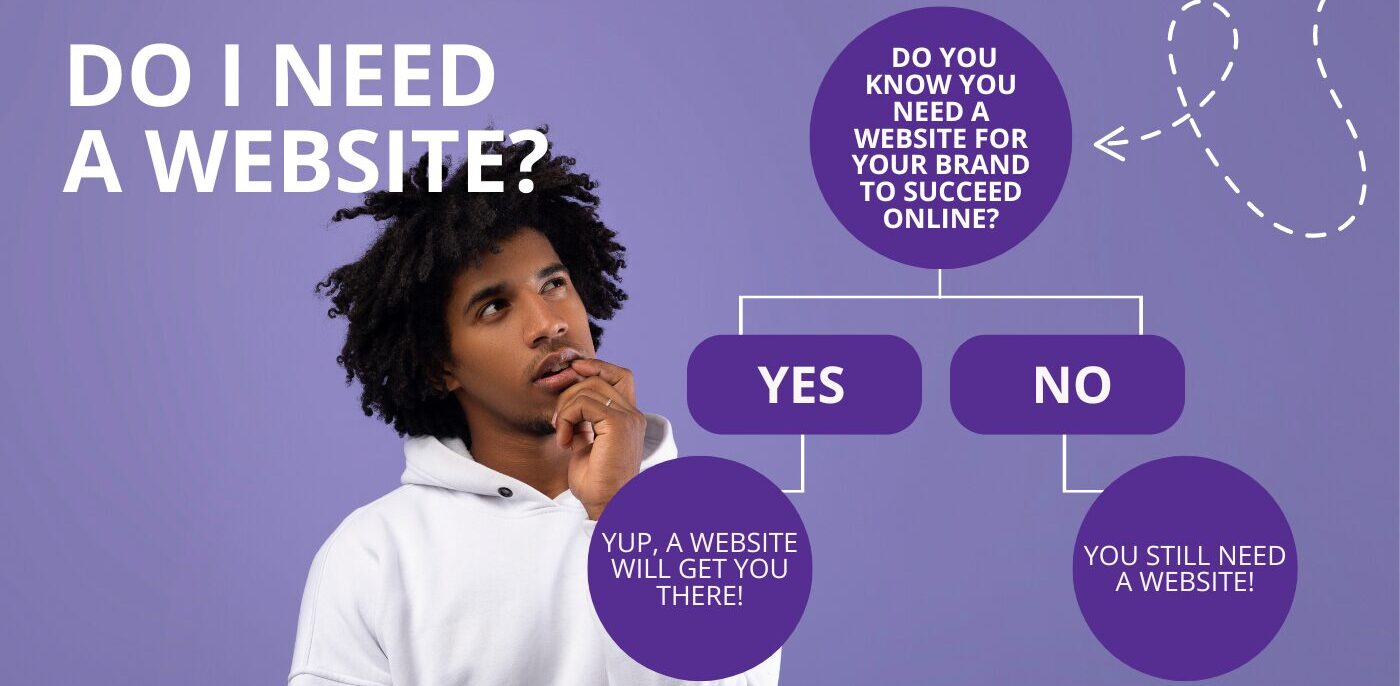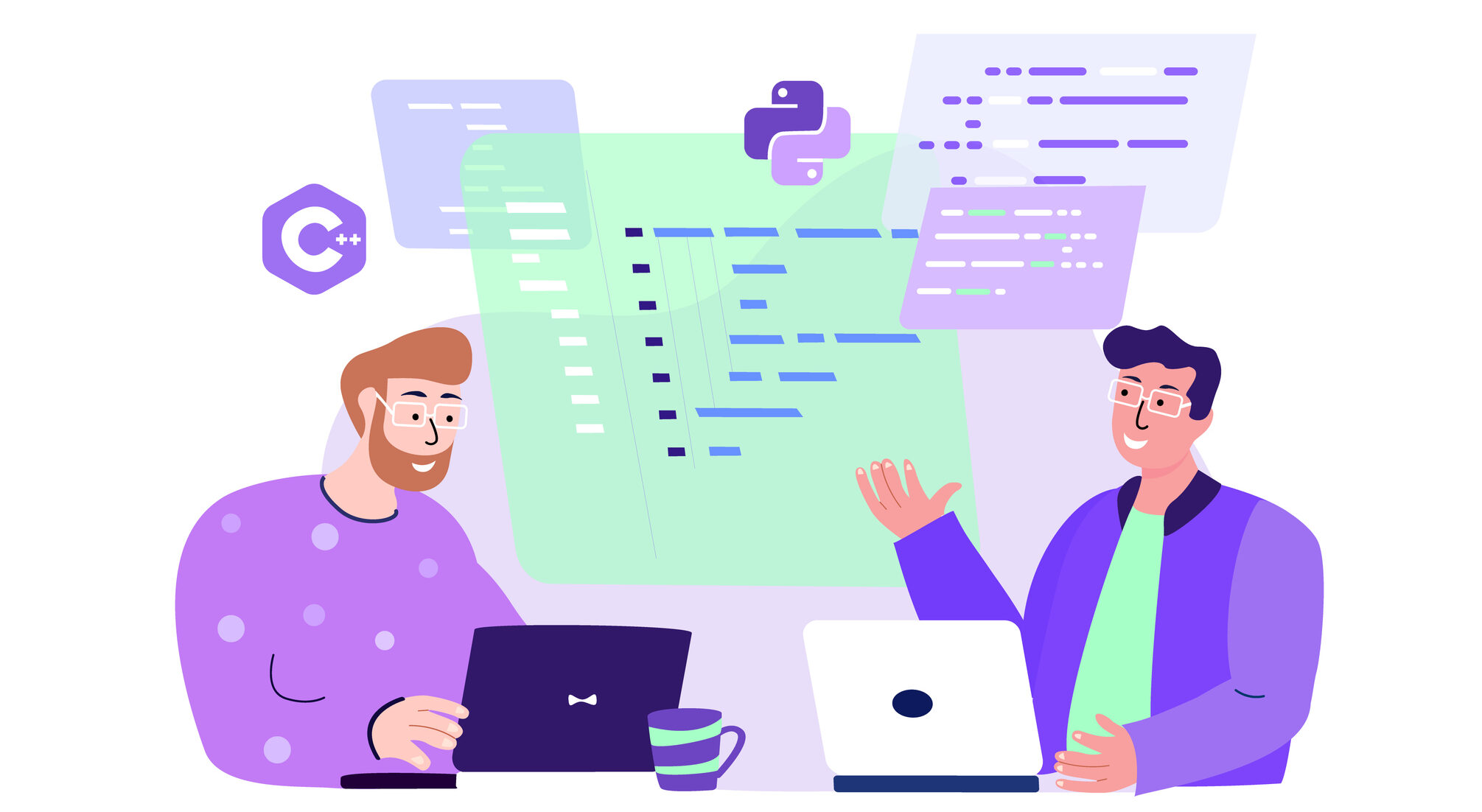In today’s digital age, your website is your storefront, brochure, and salesperson – all rolled into one. But if your website suffers from outdated design, sluggish loading times, or a non-mobile-friendly layout, it’s more likely to drive customers away than reel them in.
Let’s first establish where you are in your website journey…
Do you have a website? ‘No‘ – then you’ll want to reconsider.
‘Yes‘ – that’s great news. Is it responsive, professional, and resonates with your target audience? – (We hear some mumbling in the back row!) If you are one of those businesses that has a website and needs a revamp or is a business in need of a website, then this blog is the PERFECT solution.
The Power of Responsive Web Design
What is Responsive Website Design?
Responsive web design ensures your website looks fantastic and functions flawlessly on any device, from desktops to tablets to mobile devices.
Why Your Business Needs a Responsive Website
- Credibility: A professional website establishes trust with potential and existing customers and conveys professionalism and attention to detail.
- Lead generation and user experience: A well-designed website enables visitors to contact you, boosting sales opportunities. It is also easier to navigate, providing a seamless user experience across all devices. Happy users are more likely to convert!
- Marketing integration: Your website is a hub for digital marketing efforts, driving traffic and providing valuable customer data.
- Mobile conversions: A Google study found that mobile conversions can increase by up to 70% with a responsive website design.
Studies show the following regarding responsive websites…
- 94% of visitors form their initial impression based solely on your website design (WebFX).
- 65% of new users arrive via mobile, and 74% of returning visitors come back on mobile devices (Dynamic Yield).
- 80% of users abandon content that doesn’t work on their phones (Web Design Statistics).
Further Benefits
Beyond user satisfaction, responsive design offers many advantages for businesses of all shapes and sizes.
Money-Saving
Maintaining an old, clunky website was a norm in the past. Responsive web design eliminates this need, saving you time and money in the long run, and leads to more scope in improving user experience, scalability, and SEO.
Hello to SEO
Google prioritises mobile-friendly websites in search results, meaning a responsive site is likely to rank higher in search engine results pages (SERPs), boosting your online visibility.
Scalability and Futureproofing
The digital world constantly evolves, with new screen sizes and devices regularly entering the market. Responsive design is crafted to adapt to these changes and scale seamlessly, ensuring your site stays functional and user-friendly regardless of future advancements.
The Problem with Dated Websites
Don’t let website woes hurt your business – statistics prove the impact.
User Expectations
Almost half (47%) of visitors expect a website to load in under 2 seconds, according to Kissmetrics. This stat is important because a significant percentage of users, 40%, will abandon a slow website if it takes longer than 3 seconds to load.
First Clicks Matter
First impressions matter online, and an outdated website can hurt your credibility. A whopping 94% of people distrust websites that look dated. Since users crave fresh information, a ten-year-old design will likely drive them away. Regular website updates keep your site looking modern and trustworthy.
Mobile Frustration
According to Urban Menu, over half (52%) of users ditch companies after having a bad mobile experience. To avoid this, prioritise a responsive website design that adapts seamlessly to any device.
Getting Started
There are multiple approaches to implementing a responsive website:
Evaluation
Analyse your current website’s mobile usability.
You can check this using the following tools…
Are your images distorted? Is the text too small, or must the navigation be more straightforward and convenient?
Determine Your Goals
Define your objectives for wanting a responsive website. Do you want to enhance user engagement, boost mobile traffic, or improve your brand image?
Choose the Right Approach
Assess your technical know-how and available resources. Depending on your knowledge of web design, you may be able to implement parts of a new website design yourself. However, we recommend working with a reputable website design agency (we’ve included a short guide on how to select the best website agency below—so keep on reading).
Users First
The entire design process hinges on the user and placing them at the forefront of your choices throughout the website build.
Beyond Responsive Design: What to Look for in a Web Design Agency
A good web design agency goes beyond simply creating a responsive website.
Here’s what you should consider…
Functionality
What features do you need:
- Contact forms
- Payment gateways
- Newsletter signup
- E-commerce functionality
- SEO optimisation
Content
What information will be displayed?
- Product descriptions
- Blog posts
Marketing Integration
Does your website need to integrate with marketing tools or CRM software?
Strategy
Some agencies offer guidance with initial planning, including market analysis and technical reviews.
They can further assist with…
- Brief creation
- Market research
- Content reviews
- Strategic website solutions
Costing
Research average costs and be realistic about your financial limitations. Discuss potential adjustments with the agency if their quote exceeds your budget.
Experience
How long have they been in business?
Expertise
Do they have experience in your industry?
Awards
Have they received industry recognition?
Additional Services
Do they provide additional services such as website hosting, domain registration, and website maintenance, to name a few?
Portfolio
Look for examples of their work, focusing on mobile-friendliness and design quality. If they lack examples in your industry, discuss their approach to your specific needs.
Reviews
Check online testimonials on Google, Yelp, and Facebook to gauge client satisfaction.
Finding Your Responsive Web Design Hero
Not all web design agencies are created equal.
Here are some additional tips…
- Look for an agency that aligns with your company’s values and personality.
- Do they make use of current industry trends?
- What is the mobile-friendliness of the websites they build?
- Choose an agency that prioritises UX design principles.
- Your website needs compelling content to engage visitors. Ask the agency about their content creation capabilities.
- Ask questions about the agency’s process and communication style.
Align Your Vision with Our Skills
Choosing a web design agency is an investment. Take time, research, and select an agency that aligns with your needs, budget, and brand identity.
Don’t wait – contact Mantis Digital and see how we can bring your vision to life!
Have An Idea? Let's Build And Scale It!









